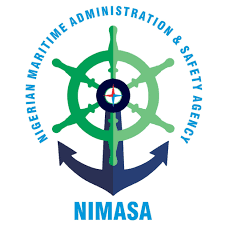
NIMASA’s mandate: Beyond maritime administration
By Jimoh Olorede, PhD
Services being provided by the Nigerian Maritime Administration and Safety Agency (NIMASA) encompass a lot more than maritime administration and regulation. In its commitment to adopting the global best practices in the provision of maritime services in Nigeria, the agency prioritises effective maritime safety administration, maritime labour regulation and marine pollution prevention and control.
The new Director General of NIMASA, Dr. Dayo Mobereola, has since his assumption of office in March this year, been sailing through the Nigerian blue sea by navigating the mandate and direction of the agency’s management with a sharp focus on maritime capacity development, shipping development and ship registration, training and certification of seafarers, search and rescue, and cabotage enforcement.
In line with the vision of NIMASA which is “to be the leading maritime administration in Africa, advancing Nigeria’s global maritime goals”, Dr. Mobereola led-management’s resolve is to ensure Nigeria plays an active leading role in the global maritime space. This is not only in consonance and alignment with President Tinubu’s policy direction for the creation of the Marine and Blue Economy Ministry, but also in actualization of the mission of the agency, which aims “to achieve and sustain safe, secure shipping, cleaner ocean and enhance maritime capacity in line with global best practices towards Nigeria’s economic development.”
What makes NIMASA particularly significant as an agency of the federal government is its huge stance in staking the nation’s bilateral relations, humongous revenue generation, and its potential for provision of a sustainable alternative to our over reliance on crude oil, whose boon is as many as bane. The following subsections show the nitty-gritty of the agency’s modus operandi.
International Cooperation: NIMASA’s operational functions in ensuring international cooperation and good bilateral relations encapsulate collaborating with International Maritime Organization (IMO), participating in international maritime conventions, implementing international maritime standards, engaging in regional maritime cooperation, participating in international maritime fora, and facilitating international maritime trade and commerce, amongst others.
Maritime Security: In ensuring safety of vessels, passengers, goods and overall maritime security, the mandate of the agency include preventing and combating piracy and sea robbery, collaborating with naval and other security agencies, implementing International Ship and Port Facility Security (ISPS) code, conducting security risk assessments and audits, providing maritime security training and capacity building, ensuring compliance with International Safety Management (ISM) code, and coordinating response to maritime security incidents, amongst other responsibilities.
Shipping Development: The agency also prioritises promoting Nigerian shipping and maritime industry, registering and certifying Nigerian ships, implementing Cabotage Act and regulations, developing and enforcing shipping policies, providing support for shipbuilding and repair, encouraging indigenous ship ownership, and facilitating maritime trade and commerce.
The list of the numerous areas of operation and economic influence of the Nigerian Maritime Administration and Safety Agency (NIMASA) is inexhaustible. Further to this in the area of Marine environment protection, for instance, the agency ensures the prevention and control of Marine Pollution, implementation of International Convention for the Prevention of Pollution from Ship, conduct of environmental impact assessments, monitoring and enforcement of waste management regulations, and collaboration with international organisations on environmental issues, et cetera.
In addition to the above functions, the management of the agency has also been efficient in maritime labour administration by implementing International Labour Organization (ILO) conventions and ensuring fair labour practices and standards; capacity building by providing training and education for maritime professionals, and establishing maritime training institutions like the Maritime Academy of Nigeria (MAN); and regulatory functions by developing and enforcing maritime regulations, conducting inspections and audits, and monitoring and enforcing compliance.
Furthermore, the commendations recently received by the DG of NIMASA from the Secretary-General of the International Maritime Organization (IMO), Arsenio Dominguez during a meeting at the IMO headquarters in London over Nigeria’s (via the agency’s) proactive role in maintaining the safety and security of commercial shipping in the Gulf of Guinea, attest to NIMASA’s mandate in promoting the country’s international corporate image through impactful applaudable bilateral relations with other nations of the world.
In all this, the innovation-driven, forward-looking and development-based policy initiatives of the Ministry of Marine and Blue Economy led by His Excellency, Adegboyega Oyetola, CON, that give purpose and policy direction to the agency’s cause of action, are indispensably proportional to the achievements of NIMASA, especially those recorded in the last eight months of Dr. Mobereola’s helmsmanship.
Dr. Olorede, Head, Department of Strategic Communication & Media Studies at a Federal Higher Institution in Nigeria, wrote from Osun State, via oloredejimoh@gmail.com.



